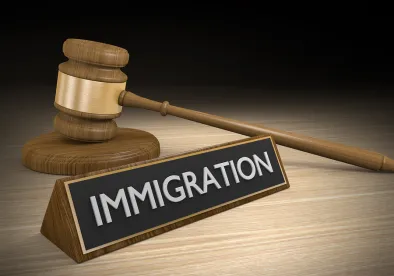Anyone who works in legal or HR and handles work authorizations for their employees will agree that hiring foreign nationals or international transfers has become much more difficult under the current administration and its interpretation of President Trump’s Hire America/Buy America (BAHA) Policy, which he issued by Executive Order in April 2017. The latest statistics issued by USCIS confirm the difficulty of processing H-1B Petitions over the past three years.
| CATEGORY | 2016 | 2019 |
|---|---|---|
| Percentage of cases initially approved | 93.9% | 84.8% |
| Percentage of cases approved following Request for Evidence (RFE) | 78.9% | 65.4% |
| Number of cases initially denied | 23,032 | 69,543 |
| Number of RFEs issued | 78,978 | 184,335 |
Why has there been such a substantial increase in the number of H-1B cases denied? The rate of denials of H-1B Petitions increased based on the April 2017 BAHA Executive Order and the October 2017 USCIS pronouncement that it would no longer extend deference to findings of a previously approved petition in adjudicating H-1B extensions.
Another major policy change by United States Citizenship and Immigration Services (USCIS) was restricting its interpretation of H-1B eligibility based on the four regulatory prongs of a “Specialty Occupation.” As a result, additional documentation is now required to prove that complex H-1B job duties justify the minimum requirement of a Bachelor’s degree in a specific specialty.
The current overlying hurdle we now face in preparing H-1B petitions is that USCIS is no longer affording any credibility to assertions made by the U.S. Employer or Attorney of record. USCIS now requires that every aspect of documenting a foreign national’s eligibility for H-1B classification is supported by “objective documentation” which is not always possible or easy to obtain. Objective documentation can be an evaluation by a University Professor, letters by recognized Experts in the field, or academic or professional Articles describing the complex duties that are typically performed by Practitioners in a particular occupation or field.
On top of these policy changes, is the extraordinary amount of discretion given to the particular USCIS officer who is adjudicating the H-1B petition. What passes the scrutiny of one officer, may not pass the scrutiny of another officer. What is credible and reasonable to one officer may not be credible and reasonable to another.
As a result, there is no predictability and uniformity to the current adjudication of H-1B petitions. In order to prepare a strong H-1B petition in today’s environment, everyone must be thoroughly engaged: the Employer, the foreign national, and the Attorney. It is essential to provide specific, detailed and technical information to USCIS regarding the U.S. job position. We must also show the relevant knowledge and skills gained by the foreign national in his or her degree program which are essential to the performance of the job duties, and which must be supported by “objective documentation.” As we approach another cap season, and continue to pursue H-1B extensions, now is the time to “think outside the box” to identify “objective documents or evidence” which support the assertions made in an H-1B petition.




 />i
/>i
